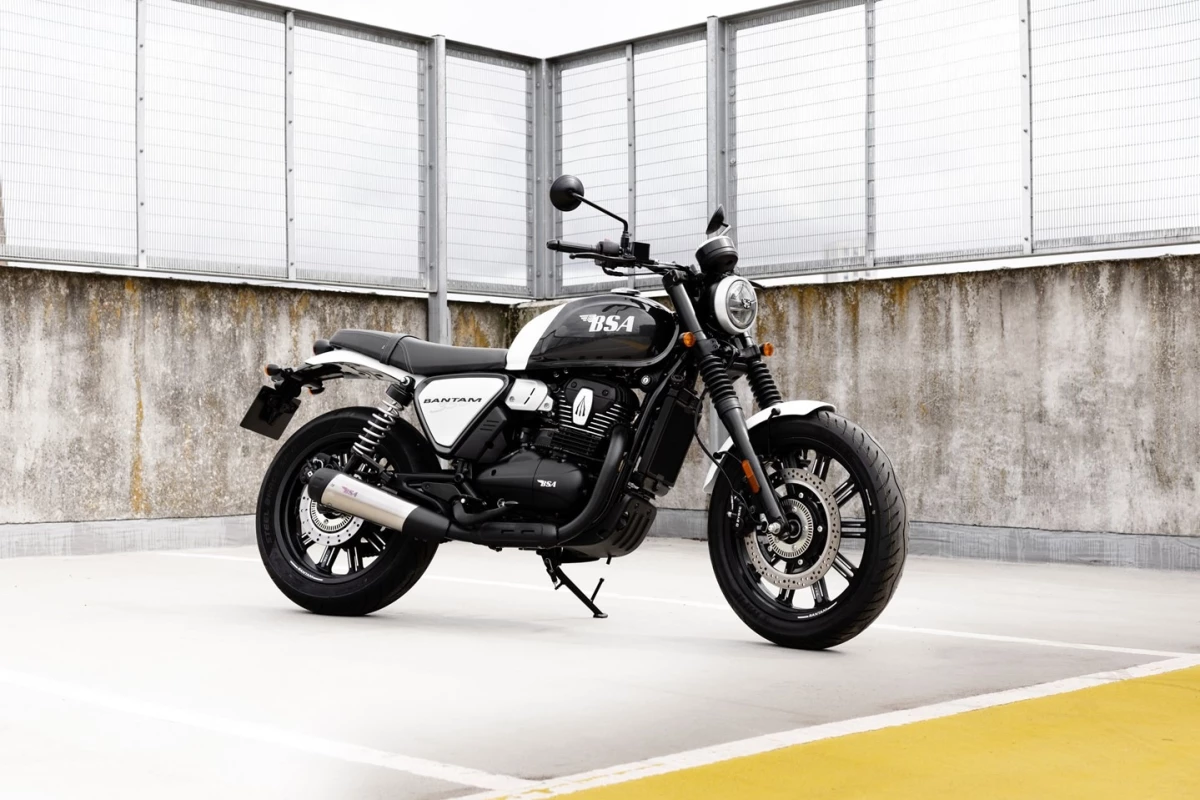First manufactured in 1948, the original BSA Bantam was perhaps one of the most iconic two-wheelers that ushered in a new era of motorcycle culture. It was a pretty straightforward two-stroke single, coming in 125cc, 148cc, and 175cc capacities.
It’s not like a handful were made back then – BSA produced more than 500,000 after the Second World War. And it happened at the peak of BSA’s fame – right before it acquired Triumph to become the biggest motorcycle manufacturer in the world.
Now, some 75 years later, the tables have turned. BSA isn’t exactly at the top of the pile. But what it is doing currently is reemerging from the shadows to launch new motorcycles after what seems like an eternity. Backed by Indian auto giant Mahindra, the company has revealed its latest offering – the revived Bantam.
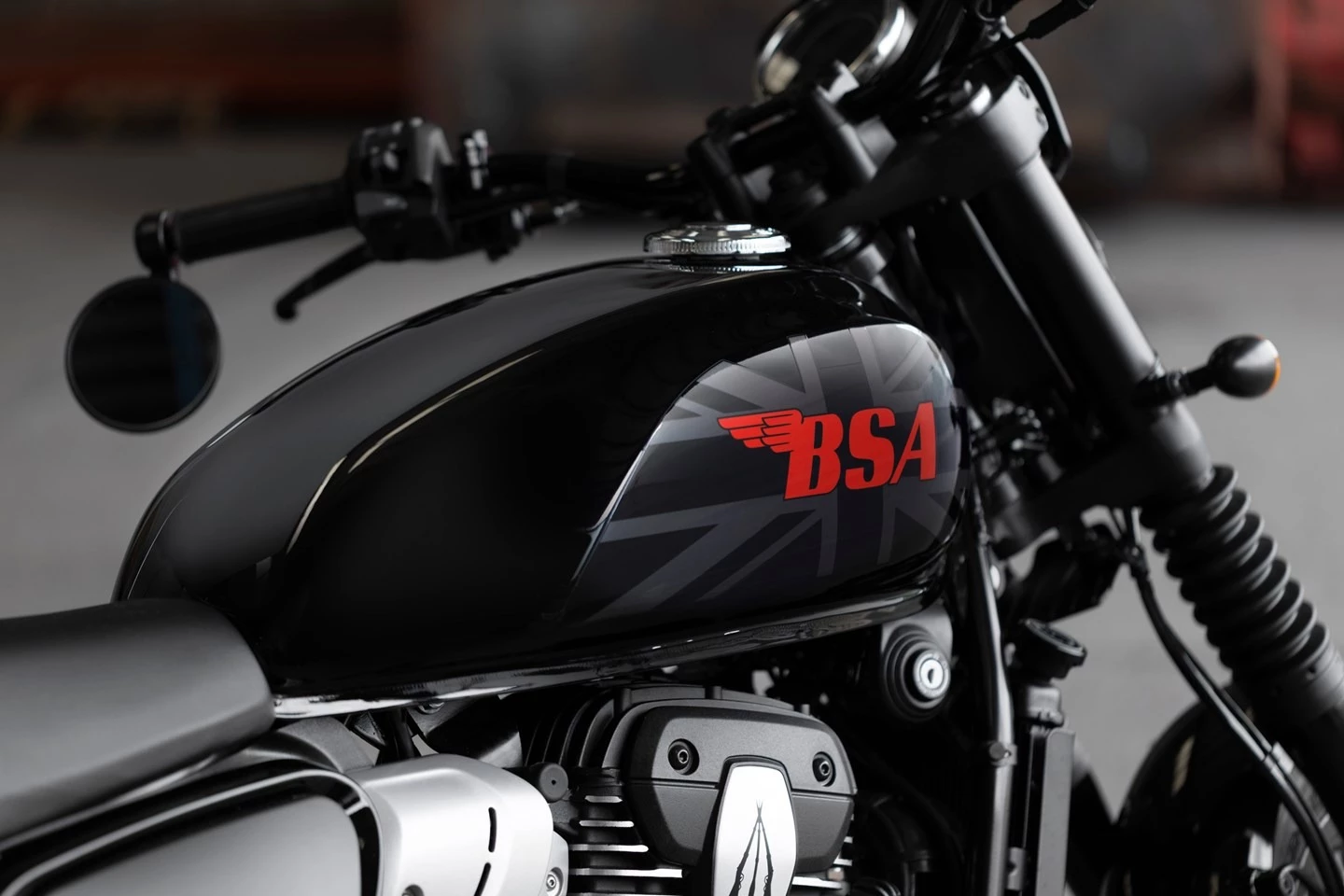
There’s not much similarity between the two iterations. The new model is based on a certain Jawa (another Mahindra-owned company) motorcycle, dubbed the 42 FJ, and you may not have heard of either Jawa or its bikes, considering the brand largely serves India, Nepal, the Czech Republic, and other parts of Eastern Europe.
The BSA Bantam 350 comes with a liquid-cooled, 4-valve, four-stroke, 334cc single-cylinder engine, with double overhead camshafts. It is mated to a 6-speed transmission, producing 29 horsepower peak at 7,750 RPM.
This puts the Bantam almost 10 hp and one gear ahead of air-cooled singles from Royal Enfield and Honda, which, like the Bantam, are also produced in India. This is substantial considering the BSA single will take on Royal Enfield’s popular 350cc family, comprising the retro-styled Classic, the peppy Hunter, the iconic Bullet, and the cruiser-styled Meteor. You could also add Honda’s GB350S to that list, but it hasn't exactly been a runaway success like the Enfields.
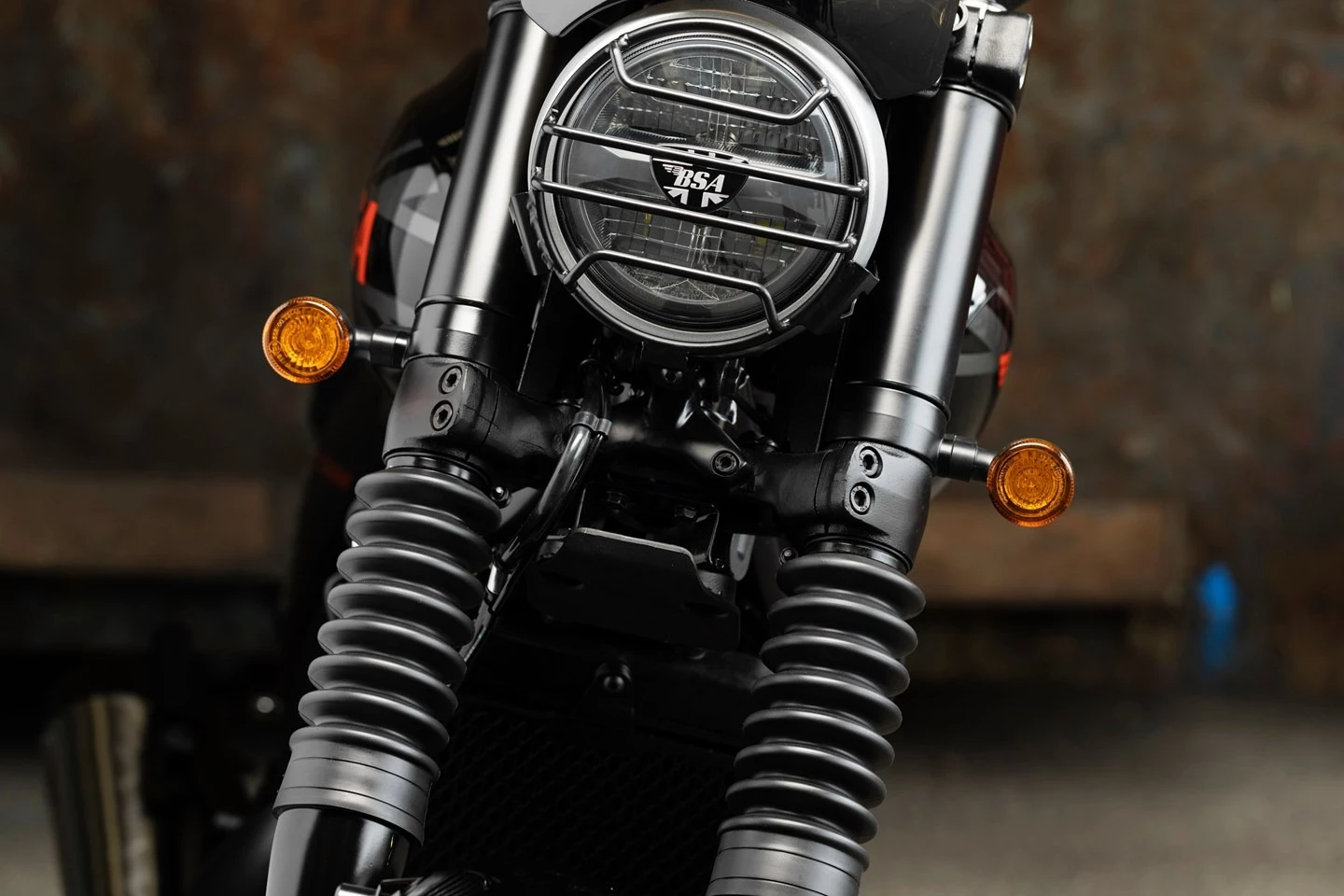
One of the first prerequisites for nailing a bike in the entry-level retro category is to get the styling right. While Bantam is no proper cruiser, nor is it exactly a reborn classic, I like how the bike is styled. Standout throwback touches include the discreet radiator sliding between the front beams of the frame, an exposed single front lamp, and the right-way-up forks clad in gaiter at the front. Even the clock on the instrument cluster can be set to analog.
It sits on a tubular steel frame, telescopic forks, and two pre-tensionable shock absorbers on the rear. You get 5.3 in (135 mm) of travel from the front end and 3.9 in (100 mm) of travel at the back. Brakes are offered by Bybre, an Indian Brembo sub-brand, in the form of discs at front and back.
Like its rivals, the Bantam should be a joy around town and on country roads, but it may struggle on the highway. Although its 3.4-gallon (13-liter) fuel tank ought to offer plenty of miles between fill-ups. A 399 lb (185 kg) wet weight and a 31.4-in (800 mm) seat height should help make beginner riders comfortable.
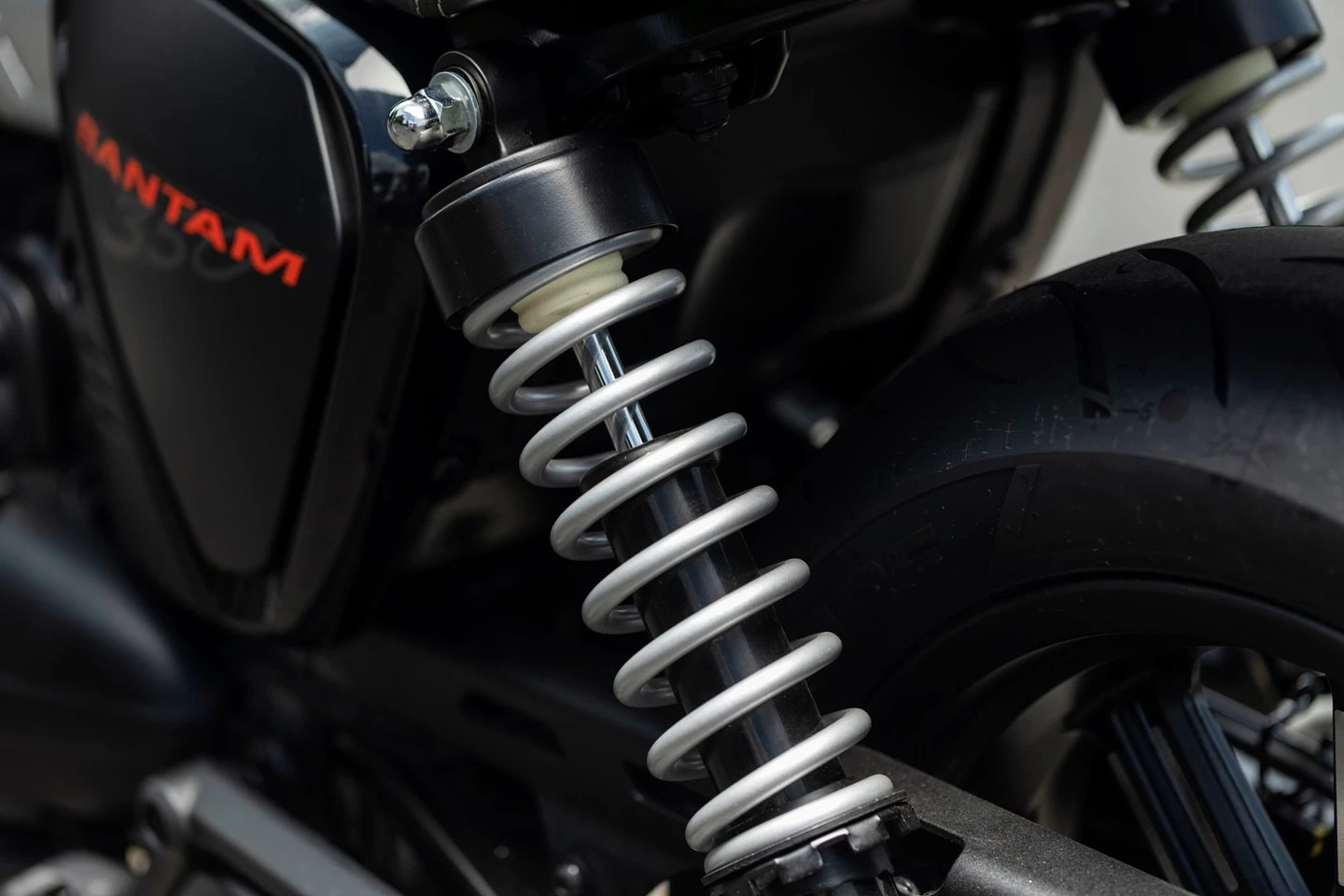
Other than ABS and LED lighting, you don’t get much fancy equipment on board. BSA has kept things mostly functional, but that’s more or less the norm in this category.
Speaking of which, I have to admit, the retro 350cc category is exciting, but it is a tough nut to crack. Not only do you have to offer better performance (which the Bantam does), you also have to be wary of pricing your motorcycle right, which again, seems like BSA has gotten right.
The Bantam is priced at £3,499 in the UK (which converts to around US$4,630). In the same market, the likes of the Royal Enfield Classic 350 (at £4,639) and the Honda GB350S (£3,999) are not only more expensive, but arguably a bit aged. There are also better-equipped options on the market – Triumph’s 400s offer far better performance, but then again, they are priced upwards of £5,000 in the UK.
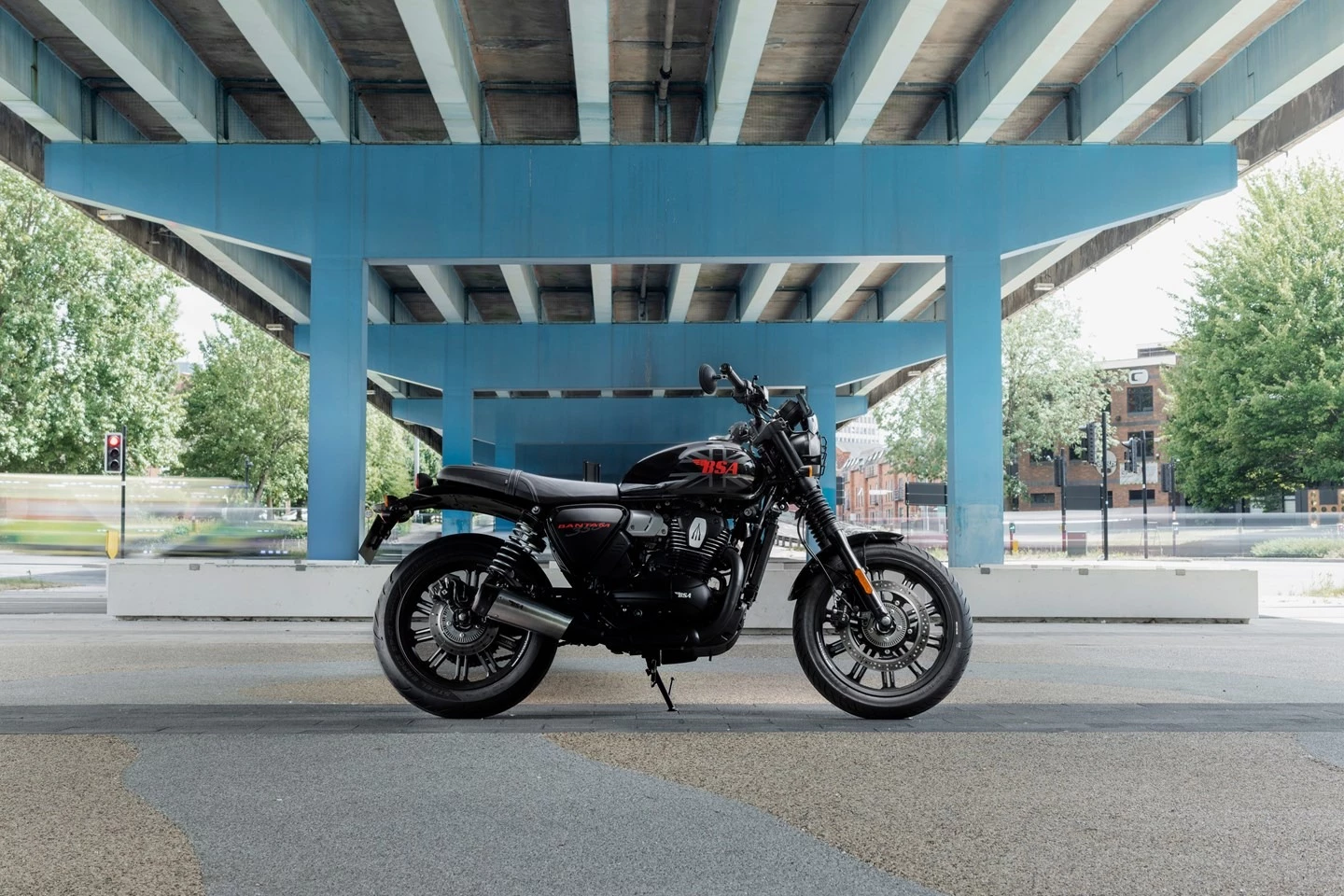
BSA is currently active in 12 markets worldwide, namely India, the United Kingdom, Turkey, New Zealand, the Philippines, Germany, France, Italy, Spain, the United States, Australia, and Japan. The Bantam 350 is scheduled to make its sales debut in the UK from September 2025 before making its way to other countries. There is no word on a US launch yet.
Source: BSA
